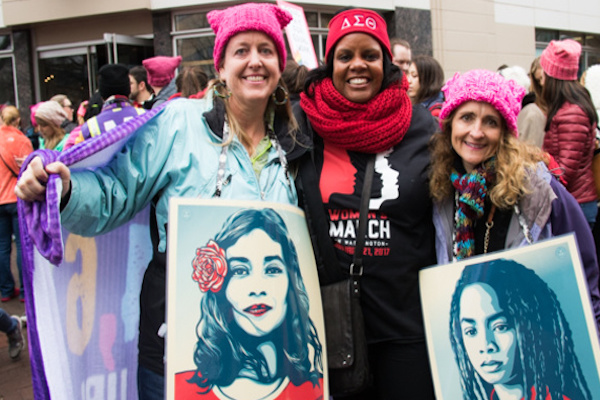
Disney Stands by Same-Sex Kiss
March 9, 2017
Barry Jenkin’s Moonlight: An Oscar for the Marginalized
March 9, 2017“First they ignore you. Then they ridicule you. And then they attack you and want to burn you. And then they build monuments to you,” said trade unionist Nicholas Klein to the Amalgamated Clothing Workers of America in 1918.
His address came at the height of, now, much celebrated protest action opposing conservative labor policies in the U.S. A century later, this very country finds itself rife with activism opposing not just the regressive politics of the newly elected presidency, but the president himself.
Cynics question the point of protest after the fact, insinuating that it is too late for real impact since the new administration. They don’t seem to understand that democratic participation extends beyond the ballot paper and that protest plays a crucial part in the balance of power.
The Women’s March is reported to have been the biggest demonstration in US history. If the estimate by crowd scientists quoted in New York Times is anything to go by, then over 450, 000 people showed up to the nation’s capital alone, never mind the hundreds of thousands who showed up at ‘sister marches’ in other major cities.
It employed the age-old strategy of mass action to make sure concerns about plans to cut back funding of sexual and reproductive healthcare, and disregard Obama’s transgender bathroom decree, as well as disparities in wages between men and women in the country.
“In the spirit of democracy and honoring the champions of human rights, dignity, and justice who have come before us, we join in diversity to show our presence in numbers too great to ignore,” said its official website. You see, these protestors understand something that the cynics do not: the power of disruption.
Protests are disruptive so that you have no choice but to engage. A demonstration like the one witnessed on Saturday is literally that: a demonstration of power to disrupt, as well as the extent of this disruption. Such a disruption in the productivity of a city like Washington DC could have grave consequences for the entire nation.
As a South African, I am very familiar with this, with the value of our currency plummeting at the simple threat of disruption to productivity. I witnessed this when nationwide student protests calling for free education broke out in 2015; and again, when protests calling for our president to resign erupted.
At that point, when a demonstration begins to have a ripple effect, the issue consequently begins to affect more than just protestors in the street. Everyone becomes affected by the matter and everyone benefits from its resolution, and everyone calls for a resolution to be met.
There are already to plans to intensify protest action leading up to a second march in April, since the Trump administration seems undeterred. However, as the protest becomes louder, it will be harder for the government to ignore. In the words of renowned Australian anti-nuclear activist Helen Caldicott, “Sometimes it’s appropriate to scream at them,” especially when talking falls on deaf ears.





